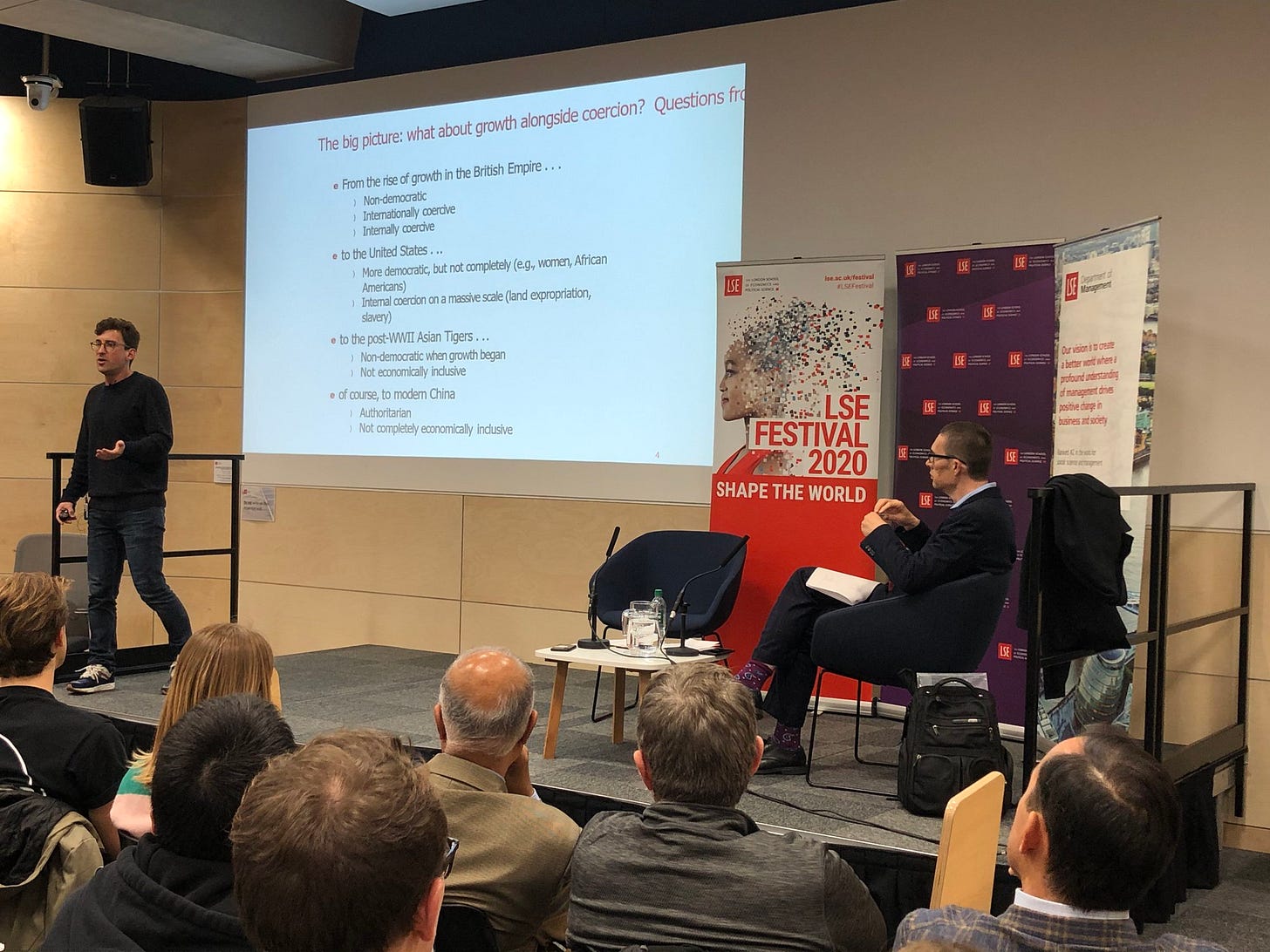The Democratic Potential of Big Data
Reflection on LSE Lecture by Noam Yuchtman
I attended another lecture by a wonderful professor, Noam Yuchtman, on despotic data. The idea of the lecture is that data-intensive innovation, such as developing facial recognition software through AI, favors limited access societies which operate under a pact between a cartelized market and the state over open access societies. The implication is that after a brief interregnum following the collapse of the Soviet Union, history has once again resumed. We cannot be certain I the exponential efficiency gains involved in information process have turned the great advantage of democratic societies, distributed information, into a disadvantage in the 21st century.
In spite of the micro evidence Yuchtman provides for the advantages of authoritarian states in promoting innovation in certain sectors, I feel that the end of his remarks suggest that the fundamentals of the competition between open and limited access societies has changed little. As the moderator reminded the audience, when Hayek was a towering figure at LSE, many commentators wondered if the Soviet Union and centrally planned states more generally had an inherent advantage in promoting economies of scale over societies on the other side of the Iron Curtain. We ultimately had the last laugh for reasons predicted by Hayek. The center’s capacity to predict human behavior, no matter how much data it controls, will always be elusive.
I am glad that I asked my question on the democratic potential of big data because he clarified that government’s ability to reliably deliver growth will depend on their capacity to develop and maintain inclusive institutions. When it comes to the strategies that revive the democratic and egalitarian ideals of the world’s rich countries, big data will be essential, but it will ultimately depend on if that data is elevated to the status of a public good and is therefore inclusive or if it is used to extract rents and solidify dominant firm’s market prerogatives.
The risk is rather than providing a true alternative to the vision of limited access societies offered by authoritarian China we will stumble into a set of arrangements that emulates their model without the benefits of state collusion. As is currently being experimented by the economist Raj Chetty, we must insist on open access societies with free markets and democratic accountability as their essential pillars. That means data must be nonexcludable, so as to allow public interest groups to shine sunlight on our faults in the hope that they are disinfected. This kind of system will not only ensure that the rents acquired from data are more widely distributed, but they will leave us less vulnerable to the threat that concentrated rents can map onto the political system and sustain oligarchic control. If we are to transition from a vision of data that promotes market concentration to one that engenders civic participation, we are well on our way to returning to the inclusive institutions of the post-war era that set us on a preeminent stage in world affairs and will secure a favorable future position against competitors, such as authoritarian China.

